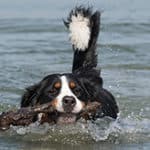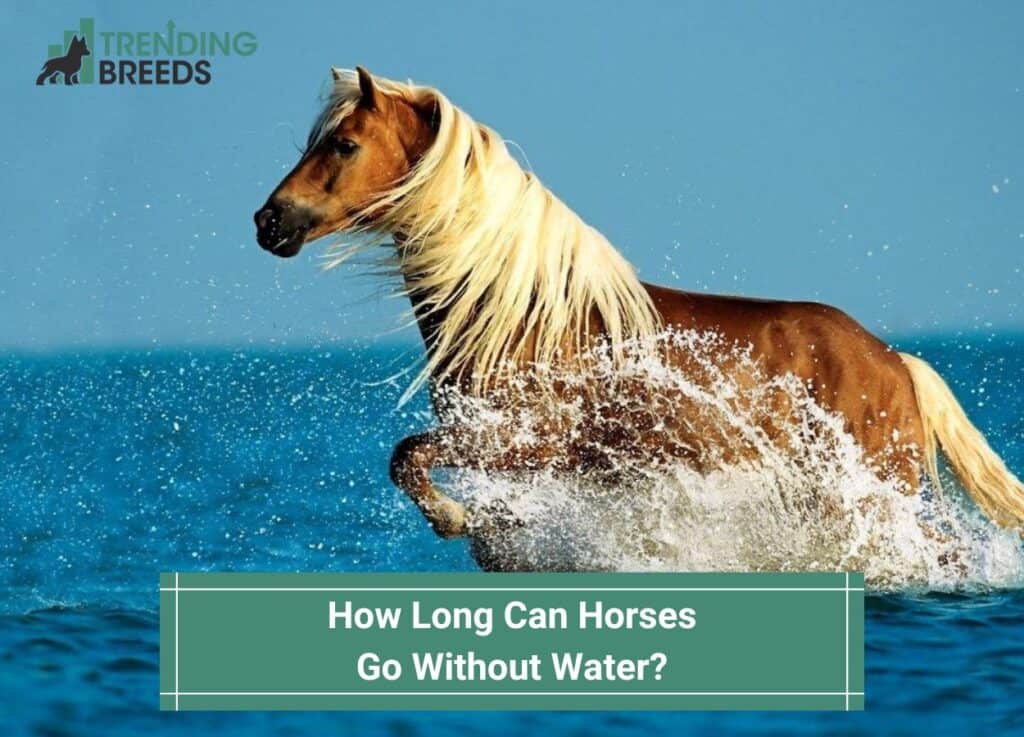
Horses have a reputation for being high maintenance. If not cared for properly, they can get sick quickly. If you’re just starting out as a horse caretaker, you may want to know how long can horses go without water.
Horses can only go three days before they start experiencing severe symptoms of dehydration.
However, just because a horse can go three days without water doesn’t mean it should. Ensure your horse has access to clean and fresh water at all times.
Keep reading below for more information.
Before you scroll further down this guide, check out these other horse-related articles: Best Horse Rescues in The USA and Best Horse Rescues in Arizona.
Table of Contents
How Much Water Do Horses Drink a Day?
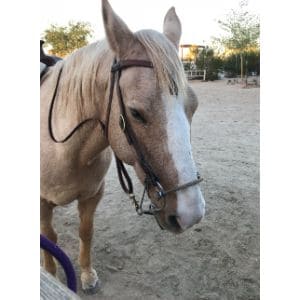
Knowing how much water a horse needs can help us estimate how long it can go without drinking. As we shall see, several factors contribute to this broad range.
To maintain their health, horses must drink a specific amount of water daily. As veterinarians recommend, water intake should be determined at 50 milliliters per kilogram of body weight per day.
To put this into perspective, a horse weighing 500 kilograms on average requires 25 liters of water daily to stay alive.
This, however, is not as straightforward as it may seem. This is the absolute bare minimum amount of water that a horse needs to consume for its body to continue performing its fundamental functions.
Several other factors, including the following, also influence how much a horse drinks in a day:
Horse Size
Larger horses have a greater requirement for water intake.
While a small horse may only require 5 to 10 liters of water daily, a huge horse may consume as much as 100 liters each day.
Climate
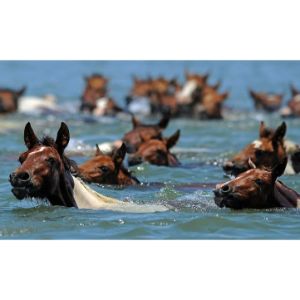
In warmer temperatures, horses have a greater requirement for water consumption. This is because they shed significant water through sweating to reduce their body temperature.
Diet
The amount of water your horse needs to consume will vary depending on the moisture in its food.
Grass, for instance, contains 83% water, whereas hay has only 18% water. A horse that is only given hay to eat will consume far more water than one allowed to graze freely on grass.
Activity Levels
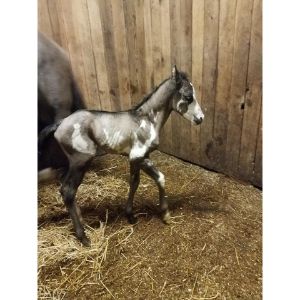
The amount of water a horse loses through perspiration and breathing increases significantly during strenuous exercise. A horse that doesn’t get much activity will consume far less water than one that does.
How Long Can a Horse Go Without Water?
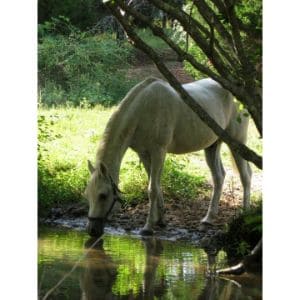
This brings us to the answer to the question that doubles as the focus of this discussion.
Interestingly, a horse may survive for at least a month without eating. On the other hand, when it comes to water, a horse can go without drinking for up to five days before dying of dehydration.
Suppose a horse does not drink for more than forty-eight hours, for example. In that case, it will begin to exhibit symptoms of colic, which will swiftly progress into lethargy and eventually impaction if the horse continues to go without water.
So, let’s examine the factors that can exacerbate dehydration:
Composition
One thing to note is that a horse’s muscles are composed of 75% water, while its brain is composed of 85% water, and its bones are composed of 30% water.
The horse’s skeleton also contains water, but only in a proportion of 30%. Because water accounts for over 60% of a horse’s total mass, keeping them hydrated is essential.
Electrolytes
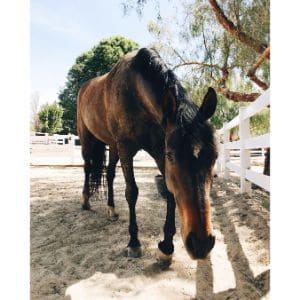
Next, we look at electrolytes’ role in a horse’s diet.
Electrolytes play an important role in the anatomy of a horse since the horse uses them to facilitate the movement of water through the horse’s cell membranes.
This ensures that the horse’s internal systems function normally and in harmony.
And when a horse loses too much water and electrolytes, it will cause its body to become stressed.
This will rapidly and eventually lead to physiological concerns such as diminished muscular functioning, muscle spasms, fatigue, and many other symptoms.
Exertion
Like humans, horses are susceptible to dehydration if they do too much.
This is because horses, like humans, can perspire. Additionally, sweating has the same purpose in a horse’s body as it does in the body of a human, which is to remove excess heat from the body.
Like most humans, horses are subjected to rigorous training regimens that involve a wide variety of activities and, in many cases, very little downtime.
Sweating as a result of such strenuous actions would then, without a doubt, result in a depletion of electrolytes and the loss of important fluid reserves, both of which are required for an animal to continue functioning.
Circumstances outside the ones listed above can bring on dehydration in a horse.
These include a body temperature that is abnormally high or a fever, an episode of diarrhea, engaging in activities such as riding or sporting competitions, and sometimes exposure to low temperatures.
When it comes to the protection of their horses, responsible owners should keep an eye out for and take into account the factors that have been mentioned above.
Can a Horse Go Without Water for a Full Day?
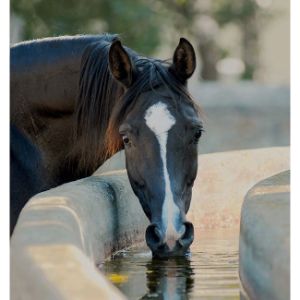
A horse might theoretically go without water for a full day, but doing so would be extremely dangerous.
A daily requirement of 25 liters of water is necessary for a riding horse of average size, and they will drink at least half of this amount when they are stabled overnight.
It’s possible that dehydration and other health issues could arise if you withhold water from your horse for an extended period.
The other risk of depriving a horse of water for an entire day is that they may drink too much too rapidly when they get any, leading to gas and colic.
Providing a quarter of a bucket’s worth of water to your horse every 20 minutes until the animal is no longer parched should be done if your horse was left without water overnight by accident.
Can a Horse Go Long Distances Without Drinking?
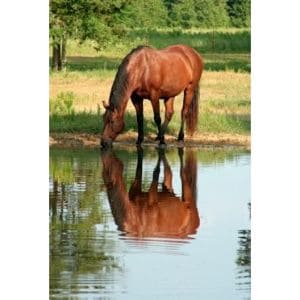
If you are going to take your horse on a long trail ride, one of the top priorities for you to keep in mind is to ensure that your horse will have plenty of opportunities to drink water along the way.
You may come across natural water sources along the road, such as lakes, streams, and rivers, where your horse can stop and drink. If you don’t have access to a water source, you’ll need to bring some with you.
If you want your horse to get some less demanding exercise, you should stop every two to three hours for a rest.
This will allow your horse to have some water and a little bit of feed during the break.
While this is generally a good rule of thumb, you will need to let your horse drink more often than this if you are engaging in strenuous physical exercise and he is losing a lot of water through perspiration.
This is especially true over long distances, like in endurance races, where competitors may cover more than 100 miles daily.
Vet checks at rest stops along the route are required by competition rules to reduce the risk of dehydration among the horses.
Each horse must be given the green light to proceed by a veterinarian after it has had a chance to eat and drink.
How to Recognize Dehydration in Your Horse
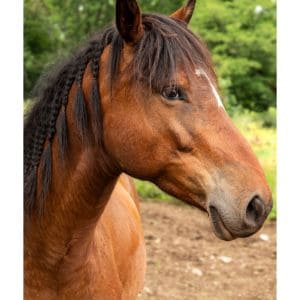
Following are some things to look out for to recognize the signs of dehydration in your horse:
Respiration and Heartbeat
This is a simple method for determining your horse’s health.
The best part is that anyone can do it. You only need to maintain a close check and pay attention to the rate at which your horse breathes and its heartbeats.
The usual breathing rate for a healthy horse is 8 to 12 breaths per minute. When this happens, it’s a warning sign that something is wrong.
Dehydration causes your horse to breathe more quickly and shallowly. When that occurs, you must give your horse water immediately.
Two, pay attention to your horse’s pulse. The resting heart rate of a healthy horse is between 36 and 42 beats per minute.
Dehydration can be determined if the animal’s pulse rate is over 60 beats per minute. On the other hand, even a minute error in calculation can frequently cause your measurements to be off.
Pinch Test
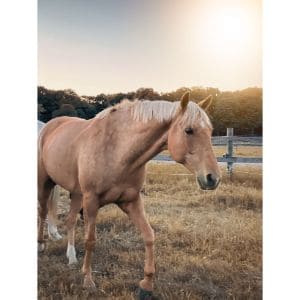
If you’re worried that your horse may be dehydrated, here’s another simple and basic way you may try. The pinch test is effective because, like human skin, a dehydrated horse’s skin loses its flexibility.
If your horse is not dehydrated, his skin will be flexible. You can test this by pinching a fold of skin and holding it for a few seconds.
This works best around the horse’s neck or chest but will work anywhere down the horse’s back.
On the other hand, if the horse is dehydrated, its skin will most likely maintain its raised, ridged appearance.
The length of time the skin remains in a ridge after using this approach can indicate how severely dehydrated the animal is; if the ridge persists for longer than 10 seconds, veterinary attention is recommended.
Dehydration Treatment for Horses
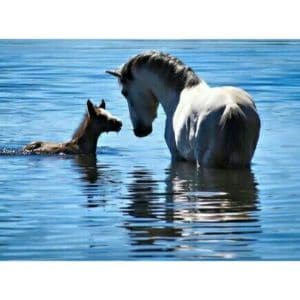
Dehydration can be treated by giving the horse fluids and electrolyte solutions if attempts to get it to drink by providing clean water have failed.
When treating and stabilizing horses with dehydration, fluids, and electrolytes are essential components of the treatment plan.
However, you should consult your veterinarian and ask him or her to provide the fluids to the animal rather than doing it yourself. The administration of an excessive amount of fluid can result in physiological issues.
Electrolytes will often be given orally. When necessary, intravenous injections are given. The mental and physical state of the dehydrated animal will determine the method employed.
The length of time a horse can survive without water is highly variable, but generally speaking, it will stop eating and lose weight rapidly after three to four days. Weakness from dehydration is the main culprit in weight loss.
A horse has a daily requirement for water that is pure and uncontaminated. The minimum requirement is one gallon of water per 100 pounds of a horse’s weight. This amounts to about 10 gallons each day for the typical horse.
The amount of water a horse needs depends heavily on the weather and the intensity of its duties.
If working out in high temperatures and humidity, your horse may require twice as much. A lactating mare needs 15–20 gallons of water daily to compensate for her loss via milk production.
Frequently Asked Questions
How long does it take for a horse to rehydrate?
It can take up to 12 hours for a horse to fully rehydrate, depending on the amount of exercise it has had.
How do you hydrate a horse that won’t drink?
Vinegar or molasses might encourage a stubborn horse to drink.
What does dehydrated horse poop look like?
Dehydrated horse manure will look hard, dry and small.
How Long Can Horses Go Without Water?
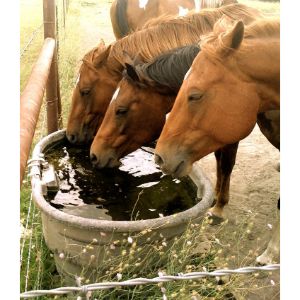
Now you know that, like humans, horses also need to drink much water (although not the same amount).
So, to care for your horse properly, you must ensure he has access to water at all times. Also, remember to keep an eye out for symptoms of dehydration.
If you find this guide, “How Long Can Horses Go Without Water,” informative and helpful, you can check out these other horse-related articles from our team:
You can learn more about horses by watching “The Most Interesting Facts About Horses” down below:




